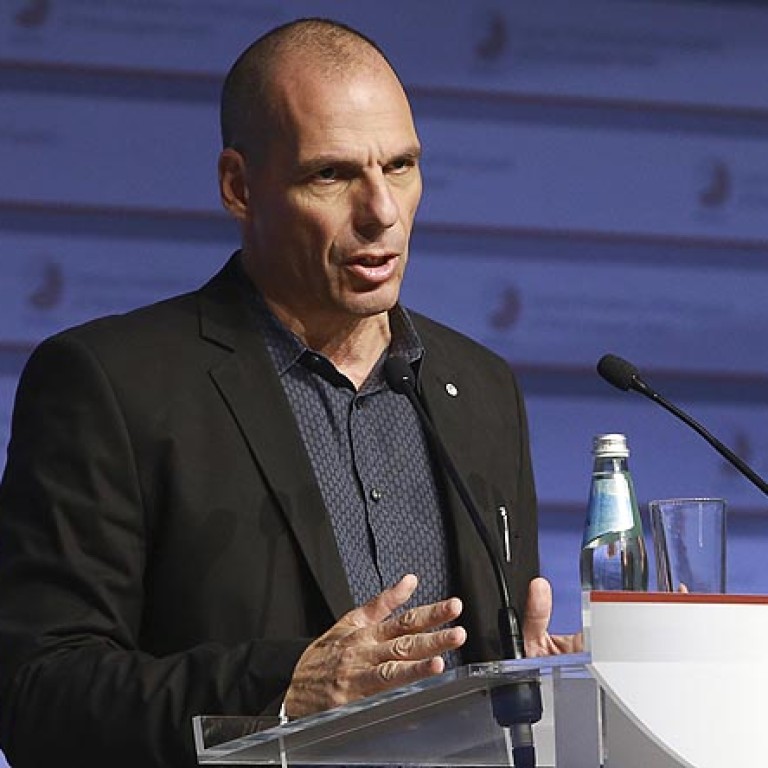
Greece under fire from creditors as bailout talks drag on
European creditors turned up the heat on Greece on Friday to deliver an economic reform programme that it needs to avoid a possible default and even an exit from the euro.
At a meeting in the Latvian capital Riga, Greece’s finance minister faced a series of rebukes from his peers in the 19-country euro zone for failing to come up with a comprehensive list of economic reforms after weeks of slow progress.
For some normally restrained finance ministers, now was the time to express discontent at what they perceive to be the delaying tactics of the new left-wing Greek government.
“It was a very critical discussion,” said Jeroen Dijsselbloem, the euro zone’s top official, after the meeting.
Others spoke of being “tired” and “annoyed” with the way the talks are going. The points were made “very vigorously,” according to Austria’s finance minister, Johann Schelling.
It wasn’t meant to be like this.
Just two months ago, Greece secured an agreement from the euro zone to get the remaining money in its bailout fund – 7.2 billion euros (HK$60.5 billion) – but only if it came up with a mutually agreed set of reforms. An end-of-April deadline was considered achievable and markets breathed a sigh of relief that the threat of bankruptcy had been averted.
But with days to go until that deadline, Athens has yet to present a full list.
European officials are now talking of a new deadline of the end of June, when the European part of Greece’s bailout programme officially ends. How Greece pays wages and salaries and meets its debt commitments, notably to the IMF, in that period remains sketchy.
The decision this week by the Greek government to scrape together spare cash from municipalities and state enterprises like hospitals and the national gallery is likely to buy some time. The move could, according to independent estimates, rake in 2 billion euros, which would cover its debt payments in May.
Dijsselbloem conceded there had been a step-change in Athens’ appetite for discussion over the past few days but that “significantly more progress” was required. He spoke of “wide differences” without specifying where the problems lay. He also ruled out that the creditors might consider a half-way deal that could give Greece part of the pending rescue loans.
Though acknowledging the “anxiety” around the negotiating table, Greece’s Varoufakis sought to portray the discussions in a more positive light.
“We look at the last few weeks and what we see is convergence,” he said, noting progress on issues such as privatisation, reforming the tax system, the judiciary, the bureaucracy and product markets.
A deal will happen, he insisted, and “will happen quickly as it’s the only option we have.”
Varoufakis said the main sticking points related to pensions and the level of the budget surplus Athens has to post after debt and interest payments are stripped out – a higher level would effectively mean the government has less money to spend on its priorities.
All sides agreed they are running out of time.
The next possible date for a deal could be May 11, when euro zone finance ministers will meet next and just one day before Greece owes a big payment to the IMF.
Greece has relied on 240 billion euros in bailout loans since May 2010 after it was effectively locked out of international bond markets amid concerns it was insolvent.
In return for the cash, successive governments have had to make savage spending cuts and economic reforms. But while the measures have focused on improving public finances, they have also hurt the economy and caused unemployment to skyrocket.
The current government was elected in January on a promise to end such so-called austerity. Its focus is on fighting corruption, reforming the public sector, and improving the porous tax system.
The prevailing view in markets is that a deal will be reached in time to avoid a Greek debt default, but only when the pressure on the country becomes unbearable – for example, when the government is out of money to pay its debts or the banks start seeing deposits running dry due to withdrawals by worried savers.
Another crunch point could come if the European Central Bank balks at providing emergency liquidity to Greek banks. ECB President Mario Draghi said the bank could ask for more in return from Greek banks given that their major source of collateral – Greek government bonds – have fallen sharply in recent weeks.
Craig Erlam, senior market analyst at OANDA, thinks the “incentive” for a deal will only come after Greece “has searched under every cushion and in every drawer and can no longer stump up the cash to continue to pay its way.”
That moment, he added, can’t be far away.
Investors seem to agree. Though the Athens stock index gave up some earlier gains, it was still up 3.4 per cent on the day, while the interest rates charged on Greek government bonds were steady.
